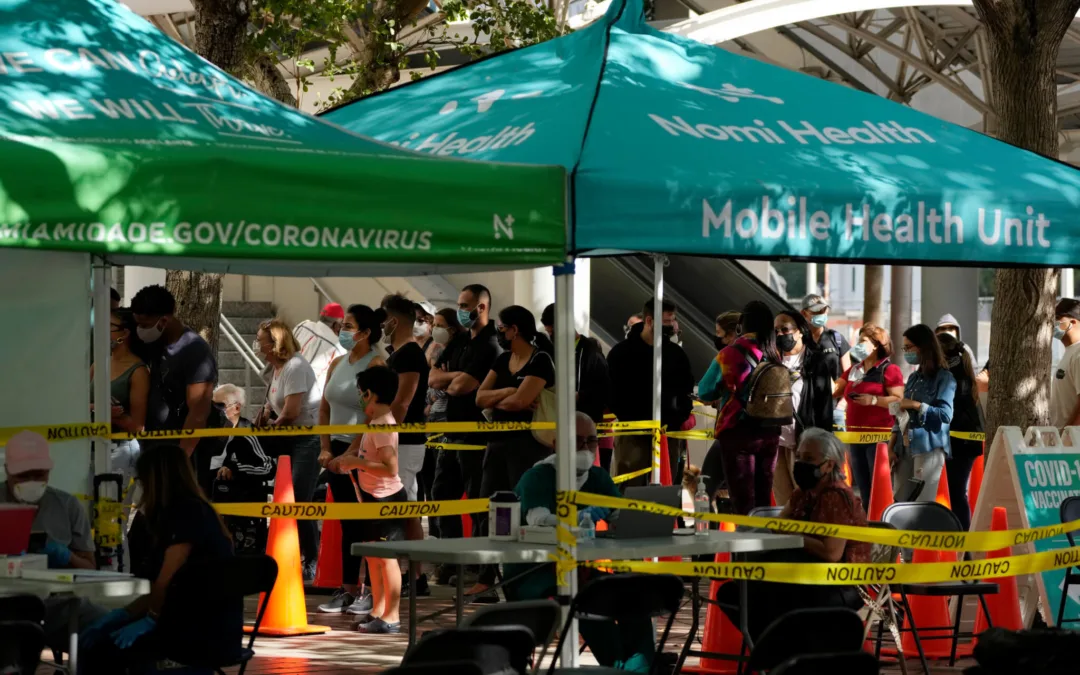
Image via Shutterstock
The AP exams shift to online only impact more negatively students of color, low income and those needing accommodations.
As the education sector adjusted to the demands of containing the COVID-19 pandemic, the vast majority of decisions like going virtual or extending college decision deadlines were at the level of states, districts and universities, but some belonged to organizations that have extraordinary reach nationally, as is the case with the College Board which offers the SAT college entrance exam and Advanced Placement (AP).
The move to virtual learning has exposed the vast differences in access and quality of educational resources across schools. However, it is fair to say that the AP program has done a lot to increase access to rigorous learning for all students, especially among low-income and students of color.
In 2019, over 2.8 million students took AP exams across the U.S., of them 666,162 were Hispanic students that took 1.1 million AP exams across the country; in Florida alone, 80,123 Hispanic students took 137,885 AP tests.
RELATED: Coronavirus Is Hitting Black and Brown Communities the Hardest
In mid-March, the College Board announced that the traditional 3-4 hour in-person paper-and-pencil AP exams, which usually include both multiple-choice and open-ended questions, were going to be administered online.
The novel online platform would allow students to take 45-minutes open-ended questions AP exams at home. Trevor Packer, Senior Vice President of Advanced Placement, shared via Twitter that the decision was supported by a survey of 18,000 students – an estimated 0.6% of likely AP exam takers – in which 91% of them asked that the exams not be cancelled, adding that those who “prefer not to persist” can opt-out and be refunded.
The rushed and scale of the decision impacts more negatively students of color, low income and needing accommodations.
Equity Challenges with the New AP Exams Online
Disproportionate Impact of COVID-19 in Black Communities
Black students, are more likely to be experiencing the trauma of the COVID-19 pandemic at a very personal level given the disproportionate rate at which the virus is impacting their families and communities.
It is not that they will “prefer not to persist” but that their suffering during this pandemic is extreme and life altering. To pretend that proceeding with AP exams is a matter of equal choice for students is false and lacks awareness and compassion.
Digital Divide
The majority of people in the U.S. are accessing the internet from home, which is resulting in challenges with internet traffic. It is likely that AP exam takers will experience disruptions of connectivity during this high-stakes and short-duration test, and that these disruptions will disproportionately impact minority students given the well documented gaps in access to technology and broadband.
The College Board has offered to provide students with technology and connectivity, but they can’t control the internet infrastructure nor make up for the digital divide one tablet at a time in the midst of a public health crisis.
Accommodations
The AP program rushed to announce the shift to the online test, yet has been very slow in addressing questions about testing accommodations. As of April 8 there is only reference to the possibility of extended time with details yet to come. Students needing this and other accommodations are being sent the message that during this time of stress they can just wait.
Two Ideas for the College Board and Student Advocates
Innovations in learning and testing are needed and could be beneficial to all students, but with over 2 million AP exam takers, this is a risky experiment run on the backs of students of color, low-income and with disabilities. There are no easy solutions in a pandemic, but here are two ideas that could address some of the equity concerns.
Make it Free for Everyone
The College Board shouldn’t charge students for this experiment. Reimburse all, removing financial and mental barriers. When some aspect of the online testing fails, as is almost certain to happen, the burden is not on students to self-advocate for a reimbursement, further eroding confidence in the AP program. This may also increase participation and help the AP program to actually demonstrate that this alternative is equitable and viable for the future.
Open Other Avenues for Testing
The College Board has stated that this is the only option for AP exams this year, until May 2021. That position is worth taking back. They should collaborate with colleges and universities in their membership to explore additional ways to measure learning and grant college credit, perhaps with in-person testing at their institutions in the fall.
The 45-minutes miracle of AP exams should not be cancelled, but these challenges with equity need to be addressed with urgency because they betray compassion and the very mission of the College Board to connect students to college success and opportunity.
RELATED: Spanish-Speaking Parents Struggle While Helping Kids with Homeschool Work
Politics

Teamsters and UPS Reach Tentative Deal to Avoid Strike, 340,000 Workers to Get Raises
The tentative deal represents a huge win for full- and part-time UPS Teamster workers, who would get significant pay raises and better working...



One Republican Senator Is Blocking 265 Military Promotions, Leaving the Marines Without a Confirmed Leader
Sen. Tommy Tuberville's decision means these military officers are not getting the pay raises they’re owed, cannot move their families to wherever...
Local News



Teamsters and UPS Reach Tentative Deal to Avoid Strike, 340,000 Workers to Get Raises
The tentative deal represents a huge win for full- and part-time UPS Teamster workers, who would get significant pay raises and better working...



One Republican Senator Is Blocking 265 Military Promotions, Leaving the Marines Without a Confirmed Leader
Sen. Tommy Tuberville's decision means these military officers are not getting the pay raises they’re owed, cannot move their families to wherever...




